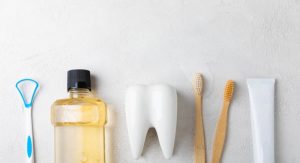Cosmetic Dental Bonding: Enhancing Smiles
Are you looking for an affordable and efficient way to enhance your smile? Look no further than cosmetic dental bonding! Led by West Sayville cosmetic dentist, Dr. Richard Sigismondi, our practice offers dental bonding to address various dental flaws and imperfections. Explore the details of cosmetic tooth bonding in the helpful guide below. Learn how we can help our patients achieve a natural-looking smile transformation!
What is Cosmetic Dental Bonding?
Cosmetic dental bonding, also referred to as tooth bonding and dental bonding, involves applying a tooth-colored resin material to the teeth and
then sculpting and shaping it to improve their appearance. This procedure is commonly used to address issues like:
- Chips and cracks
- Discoloration
- Gaps
- Minor misalignments
- Irregular shapes
- Small cavities
Benefits of Cosmetic Dental Bonding
There are several benefits to tooth bonding procedures, such as:
- Natural Appearance: The bonding material used in dental bonding is carefully matched to the color and texture of natural teeth, resulting in a seamless and natural-looking smile transformation.
- Cost-Effective: Compared to other cosmetic options such as porcelain veneers or dental crowns, dental bonding is a more affordable alternative. This makes it an attractive option for patients looking to improve their smiles without breaking the bank.
- Preserves Tooth Structure: Unlike crowns or fillings, which may require alteration of the tooth structure, dental bonding is a minimally invasive procedure that requires minimal removal of enamel.
- Minimally Invasive: Dental bonding is a non-surgical procedure that typically doesn’t require local anesthesia. The bonding material is applied directly to the tooth surface, making it a comfortable and convenient option for patients.
- Quick Results: In many cases, the transformation with dental bonding can be achieved in a single visit.
The Cosmetic Dental Bonding Process
Initial Consultation
Your journey to a rejuvenated smile starts with a consultation with Dr. Sigismondi. During this appointment, you’ll discuss your goals and expectations. Dr. Sigismondi will examine your teeth and determine if cosmetic dental bonding is the right solution for you.
Preparation
Unlike more invasive procedures, dental bonding usually requires minimal preparation. In most cases, anesthesia is unnecessary unless the bonding is being used to fill a cavity. Dr. Sigismondi will select a shade of resin that closely matches your natural teeth.
Application
Dr. Sigismondi will then lightly etch the surface of the tooth to create a rough texture, allowing the bonding material to adhere effectively. The tooth-colored resin is applied in layers, with each layer hardened using a special light.
Sculpting and Shaping
Once all layers are in place, Dr. Sigismondi will sculpt and shape the resin to achieve the desired look. After shaping, the bonded area is polished to achieve a smooth and natural appearance.
Caring for Your Bonded Teeth
Maintaining your newly bonded smile is simple with these care tips:
- Maintain Good Oral Hygiene: Brush and floss regularly to keep your bonded teeth clean and free from plaque buildup.
- Avoid Staining Agents: Minimize consumption of foods and drinks that can stain teeth, such as coffee, tea, and red wine.
- Protect Your Smile: If you have the habit of clenching or grinding your teeth, consider using a mouthguard to prevent damage to the bonded areas.
- Regular Check-ups: Schedule regular dental appointments with Dr. Sigismondi to monitor the condition of your bonded teeth.
Frequently Asked Questions
Cosmetic dental bonding can last between three to ten years, depending on factors such as oral hygiene practices and lifestyle habits. Be sure to visit your cosmetic dentist at least twice a year and keep up a good oral hygiene routine to maintain your bonding.
Yes, one of the benefits of bonding is that it’s a reversible procedure. The bonding material can be removed without causing damage to the natural tooth.
No, the cosmetic dental bonding process is typically painless. Anesthesia is usually not required unless the bonding is used to fill a cavity.
Yes, you can eat normally after the bonding procedure. However, it’s advisable to avoid very hard or sticky foods that could potentially damage the bonded areas.



